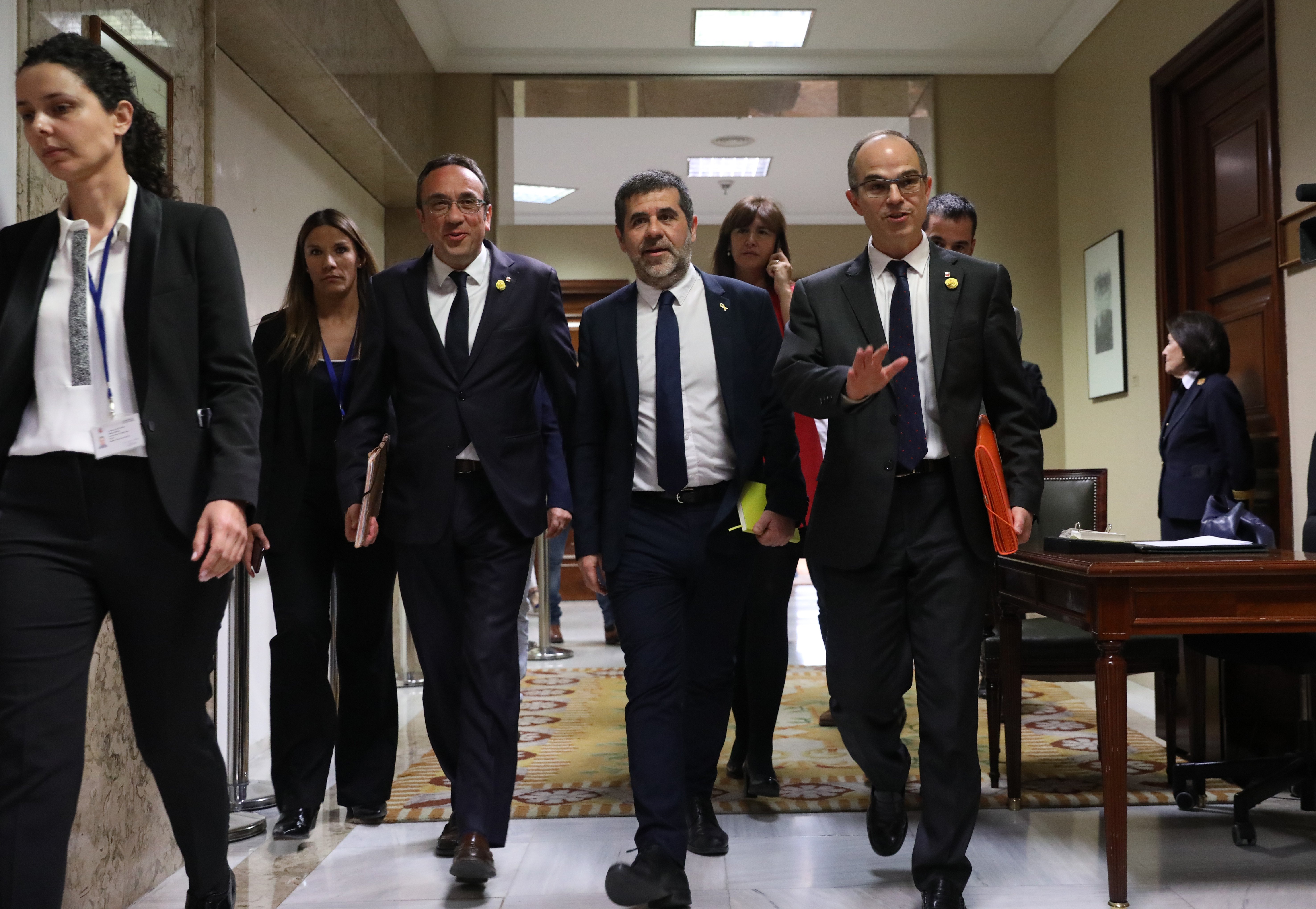A surprising argument. The Spanish government has accused the Catalan independence movement of overloading the country's Constitutional Court, according to its second response to the European Court of Human Rights (ECHR) following the appeal by former Catalan minister Jordi Turull, who accuses the Spanish judicial authorities of having violated his right to liberty and his political rights, when they sent him to pre-trial prison in March 2018 over the 2017 referendum case, thus preventing him from being invested as president of Catalonia. Turull's lawyer, Jordi Pina, also denounced that the Constitutional Court took 22 months to issue a ruling on the appeal made by the current general secretary of Together for Catalonia (Junts) against the loss of his liberty. Now, the state solicitors' office, on behalf of the Kingdom of Spain, has commented that Turull's appeals to the Supreme Court and to the Constitutional Court - the latter, rejected on February 25th, 2020 - took a longer time than usual due to their timing: "Once the conflict arising from the Catalan process was overcome, the time to resolve appeals was reduced to an average of between 7 and 4 months", states the state solicitor in the text presented to the ECHR on 15th April, to which ElNacional.cat had access this Thursday. In other words, they blame the independence movement for overloading Spain's ultimate court of guarantees.
In the appeal lodged by Jordi Turull (N.27250/20), the Spanish government maintains its defence of the Spanish courts and notes that at present an independence process amnesty law is passing through its legislative steps, and that this is set to annul the majority of convictions that the courts have decided related to the Catalan independence movement. The state solicitors also this week presented their second arguments in Jordi Sànchez's appeal (N.25608/20), in which Pina maintains that the former ANC leader's political rights were violated five times, and he too was stopped from assuming the position of president of the Generalitat. In addition, the lawyer asserts that the criminal chamber of the Supreme Court, headed by judge Manuel Marchena, was not impartial, nor were two judges of the Constitutional Court. At the same time, the ECHR unified the demands of the 9 political prisoners in a single procedure, at which the first response by the Spanish government has been, once again, to defend the independence of Spanish courts.
Justifying the court's delay
In the case of Turull, the state solicitor states that his rights were not violated because "in less than two months he already had a first response from a higher court to review the legality of his deprivation of liberty". That is to say, the judges of the criminal chamber of the Supreme Court reviewed the imprisonment order issued by one of their colleagues, judge Pablo Llarena.
As for the provisional imprisonment of the then-presidential candidate, the solicitors representing the PSOE government admit that Llarena sent him to prison in March 2018 without Turull having breached his terms of bail, granted in December 2017. For this reason, Pina insists that it is a "punishment of the politician by the Supreme Court for being pro-independence".
The Kingdom of Spain states that the human rights court has recalled that it can tolerate longer periods for the examination of the legality of a detention. And it adds that this is precisely what happened in Turull's case: "In the present appeal, Turull's claim before the Constitutional Court was particularly complex, being one of the first of a series of appeals related to Catalonia's independence process. These circumstances could justify a delay beyond the usual." Nevertheless, the text criticizes Turull for not having exhausted the Spanish judicial route before denouncing the Constitutional Court for its delays to the ECHR.
Generic statistics
To further justify itself, the Spanish state accompanied its written observations with a statistical table on the resolution times for appeals to the Constitutional Court, and adds that, with this data, the Turull case "cannot be considered excessive in view of the specific circumstances of the case and its context". From the statistics provided, the state asserts that during the years 2018 to 2020, "in addition to the ordinary workload, the court had to deal with the very numerous appeals of different types related to the events for which the plaintiff [Turull] was finally convicted”.
Thus, the time taken to issue a ruling in a constitutional appeal ranged between 1 year and 5 months (during 2018), 1 year and 7 months (in 2019) and 1 year and 4 months (in 2020). It concludes that Turull's appeal, filed in 2018 and resolved in 2020, took 1 year and 11 months, and "therefore - the state assures - within the normal rate of the Constitutional Court in those years, when it was particularly overloaded with work". And it adds that the blame for this overload is due to "the conflict arising from the Catalan process", and that resolutions have now been reduced to an average of between 7 and 4 months.
The lawyer Jordi Pina showed surprise over the incorporation of these statistics now and not at the beginning of the litigation, although he considers them incomplete because the cases are not detailed - for example if the person concerned was in preventive detention, like Turull, a fact which always gives the defendant preference in resolving appeals. Pina also notes that Turull and Sànchez, as well as Joaquim Forn, went on a hunger strike in prison in March 2018 - not to avoid the Supreme Court trial, but because of the Constitutional Court's failure to resolve their appeals.
Pina also reiterated the anomaly that the Spanish courts did not allow Turull and Sànchez to leave prison to campaign in the Catalan parliamentary elections in 2017, while later they did - for the elections to the Spanish Congress in 2019. The state solicitors' office does not consider this an irregularity, but justifies this by saying that by the second electoral process the referendum investigation was already more advanced.

